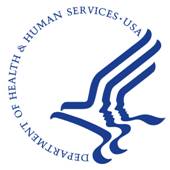Letter to OMB
Emergency Review Request Memo - BRFSS gap rbk Dec 14.docx
Behavioral Risk Factor Surveillance System (BRFSS)
Letter to OMB
OMB: 0920-1061

DEPARTMENT OF HEALTH & HUMAN SERVICES Public Health Service
_______________________________________________________________________________________
Centers for Disease Control
and Prevention (CDC)
Atlanta GA 30341-3724
December 14, 2017
Dominic Mancini
Deputy Director
Office of Information and Regulatory Affairs
Office of Management and Budget
Washington, DC
Subject: Request for Emergency Review and Clearance
Dear Mr. Mancini:
Pursuant to Office of Management and Budget (OMB) procedures established at 5 CFR Part 1320, Controlling Paperwork Burdens on the Public, I request that the proposed information collection project, “Behavioral Risk Factor Surveillance System” a population-based telephone survey of noninstitutionalized adults (18+ years), be processed in accordance with section 1320.13, Emergency Processing. I have determined that this information must be collected prior to the expiration of time periods established under Part 1320, and that this information is essential to the CDC’s mission to protect America from health, safety and security threats, both foreign and in the U.S.
The Behavioral Risk Factor Surveillance System (BRFSS) has been fielded for several decades and is the nation’s primary source of state and territory-based public health surveillance. Due to the geographic, cultural, demographic and economic diversity of the U.S., the methods used to produce national estimates provide only limited insight into regional, or state-specific variability in health status and health-related behaviors. State and local health agencies are focal points for public health program planning and implementation. National data may not be applicable to the conditions found in any given state, or detailed enough to assist federal, state, and local health agencies determine the most effective allocation of public health resources. As a result, state- or jurisdiction-specific surveys are needed to monitor state-level prevalence of the major behavioral risks among adults associated with premature morbidity and mortality, and to assess trends in health conditions and risk factors.
Information collection for the Behavioral Risk Factor Surveillance System (BRFSS) consists of landline and cell phone interviews in each of the 50 states, Washington DC and several US territories. Personal interviews are conducted in one territory where phone lines are unavailable. The survey consists of a standardized core questionnaire, optional modules with set questions and state added questions (which are not overseen by the CDC and are not included in the OMB approval package). Some modules are fielded only in even-numbered years and some only in odd-numbered years. There are also optional modules made available, which are used at states’ discretion. Pilot- and field-testing of new questions takes place in the spring and summer preceding the year of implementation. States conduct an equal number of surveys each month, which allows for trend analysis over the years that account for seasonality. Several years ago, CDC and OMB agreed on an approval process for BRFSS that includes regular submission of change and revision requests for testing of new questions and yearly substitutions of modules. This includes an annual fall submission of an approval request from the CDC program to OMB; and the process has worked well over the past several years.
The currently approved BRFSS information collection project (OMB Control Number 0920-1061) expires in early 2018. CDC prepared a revision package for BRFSS to continue during 2018-2020 and submitted it according to the usual schedule. However, due to an unexpected event outside the control of the CDC program, the 60-day Federal Register notice was not released for publication by the Department of Health and Human Services (HHS) until mid-October and publication of the 60-day notice of the Federal Register occurred on October 16, 2017. The unexpected event was the implementation of a new review procedure within HHS which was matched with an additional, parallel review procedure within CDC. These additional reviews took substantial time. CDC has since worked with HHS to clarify approval needs and develop approaches to proactively provide salient information about ICR requests to the relevant HHS and CDC review offices to anticipate and resolve potential questions that could otherwise delay approval. CDC does not anticipate making further requests to OMB for emergency approval due to the changes in process that occurred in 2017.
Via the normal clearance process and timeline, an additional 30-day notice must follow before OMB can respond on the revision request. Thus, the information collection request cannot gain the necessary approval in time for January 2018 implementation. On-time fielding is critically important to the integrity of the BRFSS program to allow for an adequate sample size and account for seasonality. States and territories must be able to conduct the allotted numbers of interviews in January, February and March. If they do not, their annual samples will be too small to be able to provide reliable estimates for many factors and the annual estimates – and thus time trend results – will be inaccurate for all factors that have seasonal patterns, e.g., health behaviors related to New Year resolutions and health outcomes related to weather. Therefore, CDC requests a 90-day emergency clearance to launch the 2018 survey on time. We expect to receive approval of the 0920-1061 revision before the 90 days expires. All included modules have been approved by the states’ representatives. All modules planned for 2018, save one, have previously been approved by OMB. The CDC program is currently working to ensure that the revision request is fully responsive to all guidance received by OMB to date.
Please provide an approval/disapproval determination of this request to collect information under an emergency clearance by close of business December 15, 2017.
Respectfully,
William Mac Kenzie, MD
Associate Director for Science (Acting)
Centers for Disease Control and Prevention (CDC)
| File Type | application/vnd.openxmlformats-officedocument.wordprocessingml.document |
| File Title | Blank CDC Letterhead for Outgoing Correspondence |
| Subject | CDC Letterhead |
| Author | Richardson, Tony (CDC/OD/OADS) |
| File Modified | 0000-00-00 |
| File Created | 2021-01-21 |
© 2026 OMB.report | Privacy Policy